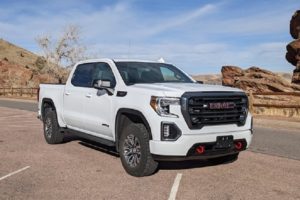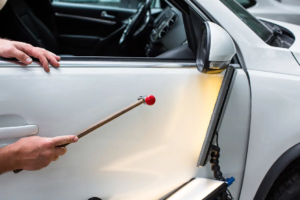
Buying a used car can be a smart financial decision, provided you know how to find the best deals. Used cars often offer excellent value, but the key is to do your research, exercise due diligence, and be patient. In this article, we’ll share five valuable tips to help you find the best deals on used cars, ensuring that your purchase is both cost-effective and satisfying.
1. Set a Realistic Budget
Before you start searching for a used car, establish a realistic budget. Determine how much you’re willing to spend, factoring in not just the purchase price but also ongoing costs like insurance, maintenance, and fuel. Be sure to leave some flexibility in your budget for unexpected expenses.
2. Research the Market
Knowledge is power when it comes to finding the best deals on used cars. Start by researching the market, which includes the make and model you’re interested in, its average price, and its reliability. Websites like Kelley Blue Book, Edmunds, and AutoTrader provide valuable information about car values, ownership costs, and expert reviews. Compare prices for similar vehicles in your area to get a sense of the market.
3. Buy from Reputable Sellers
Where you buy your used car can significantly impact the deal you get. Consider the following options:
– Dealerships
Reputable dealerships often inspect and recondition their used cars, which can provide peace of mind. Be sure to research the dealership’s reputation and check if they offer any certified pre-owned (CPO) programs.
– Private Sellers
Buying from a private seller can be more cost-effective but requires extra caution. Ensure the seller provides maintenance records, allows for a pre-purchase inspection, and doesn’t raise any red flags during your interactions.
– Online Platforms
There are websites that can provide access to a wide range of used cars. However, be cautious when dealing with online sellers, and always meet in a safe, public location.
4. Get a Pre-Purchase Inspection
One of the best ways to ensure you’re getting a good deal on a used car is to have it inspected by a trusted mechanic before finalizing the purchase. A pre-purchase inspection can uncover any hidden issues that might not be immediately apparent. This inspection provides you with valuable information to negotiate the price and decide whether the car is worth the investment.
5. Negotiate Smartly
Negotiating the price is a crucial step in getting the best deal. Here are some negotiation tips:
– Do Your Homework
Armed with your research, you’ll be better prepared to negotiate. You can use information about similar vehicles and market prices as leverage.
– Stay Calm and Patient
Negotiations can sometimes take time, and it’s essential to stay patient. Don’t feel pressured to make a quick decision.
– Be Willing to Walk Away
If the seller isn’t willing to meet your price, be prepared to walk away. Sometimes, this can encourage the seller to reconsider their offer.
– Don’t Ignore Vehicle History
A car’s history can significantly impact its value. If a car has been in an accident or has a salvage title, this can be used to negotiate a lower price.
– Consider the Whole Deal
Sometimes, it’s not just the purchase price that matters. Consider other factors like the warranty, financing options, and any additional perks the seller may offer.
Additional Tips:
– Timing Matters
The time of year can influence used car prices. For example, convertibles may be less expensive in the winter, while four-wheel-drive vehicles may be more costly.
– Avoid High-Depreciation Models
Some car models depreciate faster than others. Research and choose a car that holds its value better over time.
– Look for Certified Pre-Owned (CPO) Vehicles
CPO programs offered by dealerships provide some level of quality assurance and warranty, making them worth considering.
– Check for Ongoing Deals and Promotions
Dealerships and sellers may have special promotions or deals that can help you save money.
– Consider Older Models
While everyone wants the latest model, older versions of a vehicle can often provide excellent value without the steep depreciation of a new car in Canada.
– Read Reviews and Seek Recommendations
Online reviews and recommendations from friends or family who have purchased used cars can provide valuable insights into the best models and deals.
– Vehicle History Reports
Obtain a vehicle history report (e.g., Carfax) to check for any accidents or title issues that might affect the car’s value.
In conclusion, finding the best deals on used cars requires research, patience, and negotiation skills. When you buy a used car, setting a realistic budget, researching the market, buying from reputable sellers, getting a pre-purchase inspection, and negotiating smartly are essential steps in securing a cost-effective and satisfying used car purchase. Keep in mind that while finding the best deal is important, ensuring the car’s condition and suitability for your needs is equally vital.





